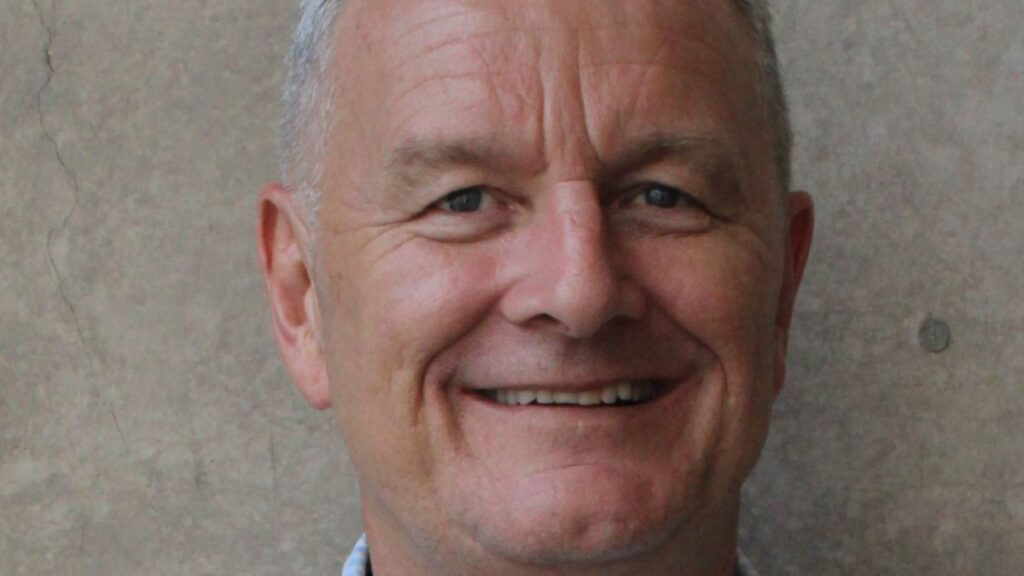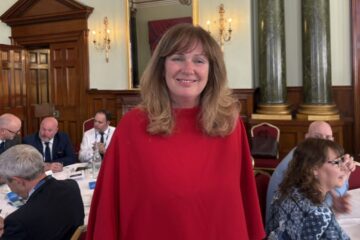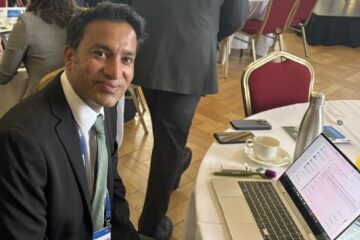Following the annual BTA Conference, Edwin Lampert from Riviera Maritime wrote an article on the presentation by Sanmar’s Gary Dockerty which provided a shipbuilder’s perspective on people and skills in a new era for towage. The BTA extends its gratitude to the speakers and Edwin for their expertise and professionalism, which contributed to the success of the conference.

For Turkish shipbuilder Sanmar, meeting the industry’s decarbonisation goals requires more than just incorporating new technologies into ship designs.
Meeting ambitious decarbonisation goals depends on having a highly skilled workforce capable of building and operating next-generation vessels, Sanmar Shipyards’ Gary Dockerty told this year’s British Tugowners Association Annual Conference.
While positive the world’s transition to a low-emissions economy will lead to job creation, he underlined it “also requires industry to develop new internal capabilities to achieve its environmental goals.” Sanmar has already started upskilling its workforce in preparation for this shift. “Looking at our hiring over the last two to three years, we’ve notably expanded our R&D capabilities in design, development and electrical engineering, which makes sense given the new technologies we’re incorporating into our vessels. We’ve also bolstered our project management teams.”
Mr Dockerty warned that hiring and training new workers will not be enough on its own. Keeping skilled employees will be just as important. He also stressed Sanmar cannot accomplish its workforce development objectives alone. The company is actively collaborating with universities and is also closely partnering with its suppliers and subcontractors to keep its workforce development initiatives in sync. “If our objectives are A, B and C, then we need to ensure our subcontractors are on the same page, with goals that align with ours.”
Despite these initiatives, there is no escaping the industry is grappling with a major skills shortage, said Mr Dockerty, especially in the science, technology, engineering and mathematical (STEM) fields that will be pivotal to decarbonisation. “There seems to be a lack of emphasis on STEM subjects in higher education,” he added. “Particularly in some of the areas we anticipate needing as our organisation adopts new technologies.”
At the same time, “We’re all competing for the same talent” as workers with sought-after skills in areas like AI and digitalisation have opportunities across many industries, not just maritime.
The industry needs to do better at showcasing the cutting-edge aspects of modern shipbuilding and the attractive career options it provides, he argued. “We’ve only recently started convincing that demographic that our sector is the place to be, ” he said. “We must find ways to persuade them that this is where the opportunities lie.”
Ultimately, the employment picture and requirements will become clearer as our clients gain more certainty about their own future, he concluded, “Since our goals can only align with theirs.”
The article can be found on Riviera’s website here – https://www.rivieramm.com/news-content-hub/sustaining-the-workforce-of-the-future-80834
With gratitude to Edwin Lampert and Riviera for granting permission to the BTA to publish the article.


